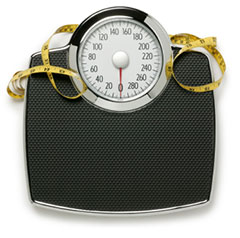 When we see someone clutching their chest, we don’t hesitate to call 911 to get them professional help. Why are we so hesitant to get professional help when we know someone is poisoning themselves with food? The signs of obesity are just as obvious as a heart attack and the consequences are just as fatal. Being obese increases the risk for diabetes, heart disease, stroke, arthritis, gout, gallbladder disease, fatty liver disease, high blood pressure, high cholesterol, fertility problems, certain types of cancer and respiratory diseases including sleep apnea. In short, obesity shortens a person’s life expectancy.
When we see someone clutching their chest, we don’t hesitate to call 911 to get them professional help. Why are we so hesitant to get professional help when we know someone is poisoning themselves with food? The signs of obesity are just as obvious as a heart attack and the consequences are just as fatal. Being obese increases the risk for diabetes, heart disease, stroke, arthritis, gout, gallbladder disease, fatty liver disease, high blood pressure, high cholesterol, fertility problems, certain types of cancer and respiratory diseases including sleep apnea. In short, obesity shortens a person’s life expectancy.
American obesity is a rapidly growing epidemic. According to the CDC (Centers for Disease Control and Prevention), 26.1% of Americans are obese. That number rose from 25.6% in 2007. To assess obesity, Body Mass Index (BMI) is calculated using height & weight. A BMI of 30 or above indicates obesity. A BMI of 40 or above indicates morbid obesity. Additionally, if you are 100 pounds over your ideal weight, you are considered morbidly obese.
There are medical conditions that cause weight gain, however those who are obese and morbidly obese generally have an unhealthy relationship with food. Many turn to food for needs that have nothing to do with physical hunger. If an unhealthy relationship with food is not addressed, no diet or exercise program will work in the long run. An obese person may lose weight, but they are doomed to gain weight again as the same issues that made them turn to food continue to haunt them. A cardiologist would not send a heart attack patient home without addressing the underlying issues. Obesity has underlying issues that need to be addressed as well.
A number of obese people report difficulties with binge eating. Binge eating involves eating large quantities of food in one sitting – usually eating to the point of being uncomfortable. Shame, depression, guilt and other negative feelings often follow the binges. The negative feelings following a binge can lead to more binge eating creating a vicious cycle. Food is no longer a source of nourishment for a binge eater – it serves as a drug to medicate negative feelings. Bingeing can be a symptom of binge eating disorder, compulsive overeating, a food addiction or another eating disorder. Unfortunately, few people make the connection between food and negative emotions. They simply lose the power to control themselves around food, but they don’t know why. They can’t regain power without identifying and addressing the core issues that led them to choose food as a way of medicating themselves.
If you suspect a loved one is a binge eater, look for the following signs:
- eating large amounts of food to the point of being uncomfortable
- eating without feeling physically hungry
- eating rapidly when bingeing
- hiding or hoarding food
- eating alone
- lying about amount of food eaten
- lack of normal portion control
- feelings of shame, guilt and depression associated with food
- obesity or morbid obesity
- denial about weight
- dieting without weight loss
In our politically correct world, we are all terrified to comment on anyone’s weight – especially someone who is overweight. With our silence and lack of action, we are tacitly granting our approval for an obese person to continue down an ultimately fatal path. We enable their disease. Action is necessary. Obesity is a leading cause of preventable death. Don’t wait until it’s too late. If you know someone who is killing themselves with food, give them the gift of life by making a call to an eating disorder center for professional treatment. If you yourself are obese or morbidly obese, pick up the phone – you could be saving your own life.

